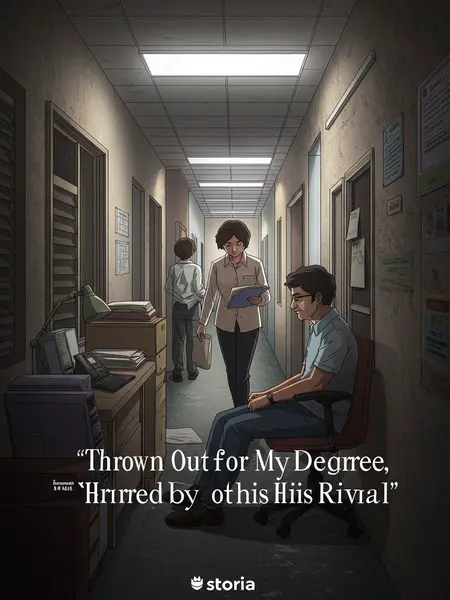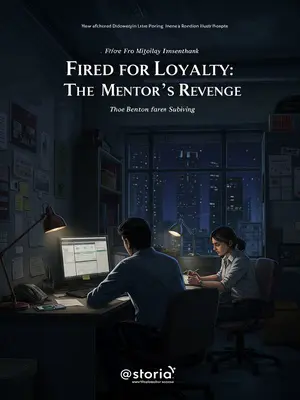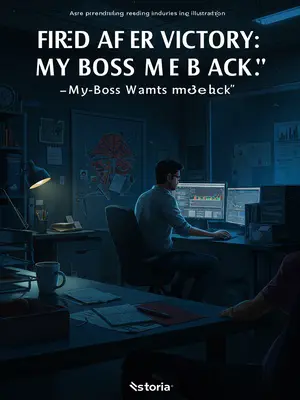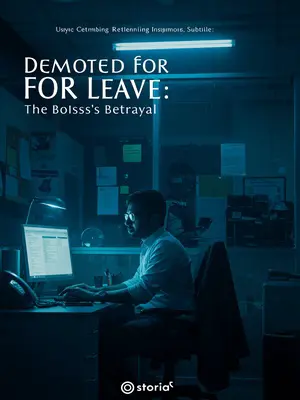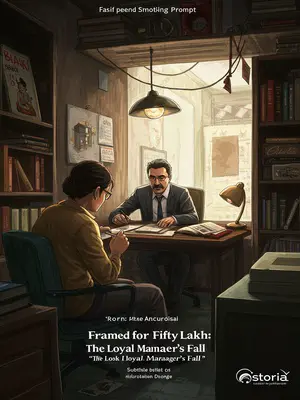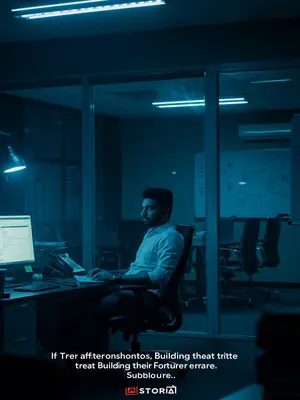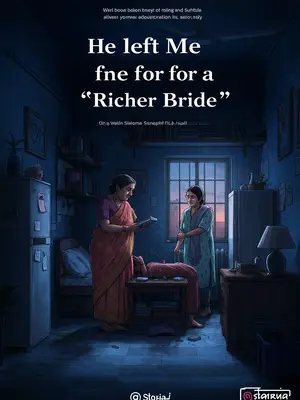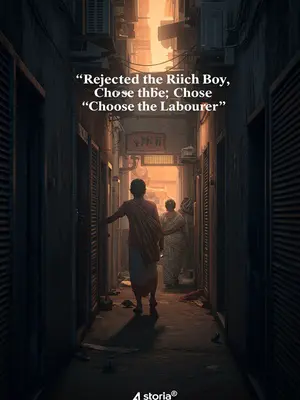Chapter 1: The Day of the Transfer
The new director didn’t just look down on my educational background—he made it his mission to remind me of it. On his very first day, he told me to get lost, as casually as someone ordering another round of chai.
As he lounged in the plush chair, shoes kicked up on the gleaming office table, I could feel his gaze measuring me—every inch, every thread of my cheap shirt. The stifling Mumbai heat had wormed its way into the AC office, making the air thick with a different kind of discomfort. A half-empty Bisleri bottle rolled off the table, and the faint jingle of someone’s temple bracelet mixed with the clack of keyboards. Somewhere outside, the chaiwala’s bell rang, and the metallic taste of insult settled on my tongue. In places like this, college names are currency. But his bluntness felt like a slap—no pretense, just pure dismissal.
Before I could finish fixing a bug, he accused me of stealing code.
I had barely typed the last few lines, letting the steady rhythm of the keyboard calm my nerves, when he loomed behind me. His voice, sharp as black coffee, cut through the air: “Arjun, what’s this you’re doing with the code, haan?” The suspicion in his tone was as thick as the smell of agarbatti drifting from the reception desk. I could feel the team’s side-glances prickling my skin—trust, once broken, is tough to reclaim here.
“A graduate from a second-rate university—how good could their skills possibly be?”
He didn’t bother to lower his voice. It was like he wanted the whole bay to hear, to put everyone in their place. The jab was classic log kya kahenge—college over competence. My ears burned, and deep inside, that old ache returned. Arjun remembered the first time his uncle had laughed at his college choice. He’d promised himself then that one day, the world would know his name. But here he was, forced to prove himself all over again.
Soon after, the system was riddled with loopholes, setting off a chain reaction. The smart car project—years in the making—was suddenly on the verge of collapse.
Within days, frantic calls and late-night messages flew like monsoon rain. The corridor buzzed with whispered complaints, the drone of a distant news anchor from someone’s phone, and nervous, hollow laughter. Rumours spun faster than the ceiling fans: “Arjun ka kaam tha, ab dekho, system phir se lag gaya,” someone muttered. The sacred project, built on countless chai-fuelled nights, teetered on disaster. You could feel the tension like a sudden power cut—sharp, inescapable, making everyone sweat.
The director scrambled to get me back to put out the fire.
He actually called—no, begged—late one night, when even the street dogs outside our housing society had fallen silent. I pictured him pacing in that swanky office, tie loosened, pride swallowed. But I let the phone ring till it stopped. Some mistakes, Amma always said, you must pay for yourself.
But by then, my new employer’s electric vehicle had already crossed 1,00,000 pre-orders on launch day.
Everywhere I looked, newspapers and WhatsApp groups were abuzz. People in my colony, who barely knew how to use Google Maps, were forwarding the launch video with pride. In the small kirana shop near my home, the uncle behind the counter was telling everyone, “Arre, Arjun ka naya gaadi, ek lakh booking hua hai!” I felt lighter than I had in years.
I was busy attending the first batch delivery ceremony with my boss.
The event was a grand affair—marigold garlands, camera flashes, the scent of hot aloo bondas and cutting chai swirling in the air. My boss, Mr. Amit Choudhary, patted my back in front of everyone. Years of struggle finally found their moment under the sun.
I couldn’t even be bothered to spare the old director a glance.
As I posed for photos, surrounded by reporters and my new team, my phone buzzed with a message from the old director. I looked at it once, then slid my phone back into my pocket. That chapter was closed—no point looking back.
